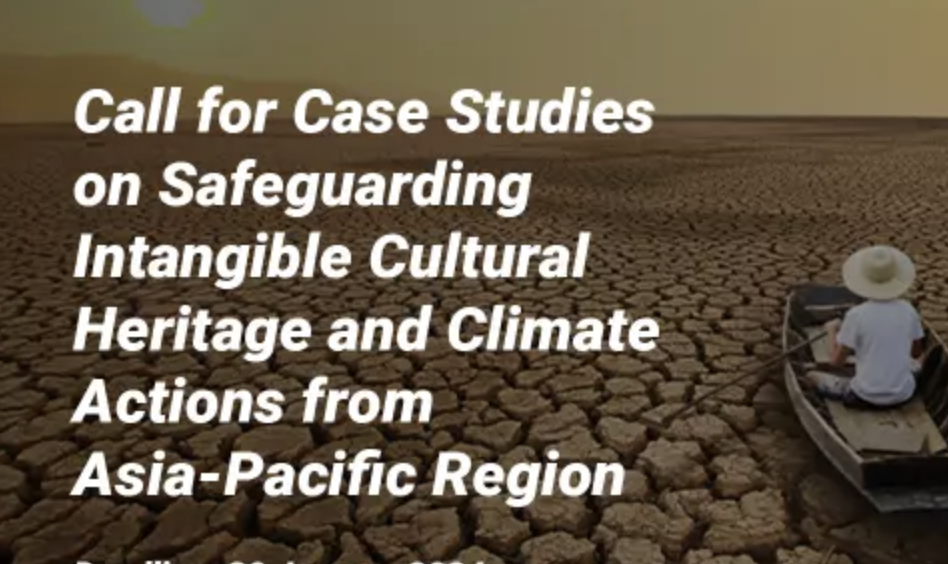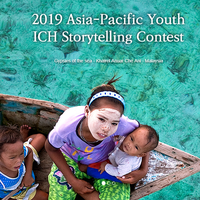Case Studies: Safeguarding Intangible Cultural Heritage and Climate Actions from Asia-Pacific

UNESCO, in collaboration with IRDR, CRIHAP, ICHCAP and IRCI, is inviting interested teams and individuals to submit case studies from Asia and the Pacific that illustrate the roles and risks of intangible cultural heritage (ICH), as well as strategies for safeguarding ICH in the context of climate change.
Submitted case studies are to be evidence-based and elaborate responses to one or more of the following questions:
- What roles does ICH play in identifying, assessing and monitoring climate change?
- What roles does ICH play in promoting communities’ adaptation and resilience to climate change?
- What roles does ICH play in mitigating carbon emissions and disaster risk?
- What are the direct and indirect impacts (including cultural, social and economic) and risks to ICH practice, transmission, safeguarding and viability from climate change over the long term?
- What changes to ICH are required for adaptation to climate change?
- What are local and regional strategies for safeguarding ICH in the context of climate change?
The language of the case studies is English and the length is 3,000 to 5,000 words.
Selected case studies will be co-published by UNESCO and IRDR and feed into UNESCO’s initiative to develop guidance on safeguarding living heritage in the context of climate change. The potential for participating in publication and/or international conferences will be discussed with authors of selected case studies.
Deadline: 30 January 2024
Similar content
deadline
15 Oct 2019
30 Oct 2019 - 31 Oct 2019
17 Mar 2020 - 27 Mar 2020


